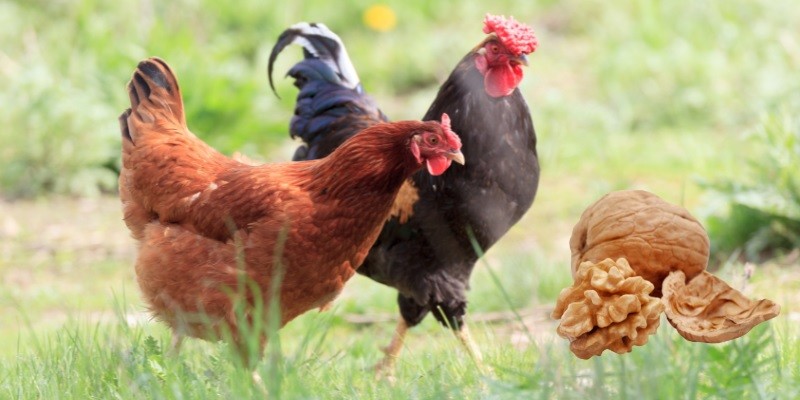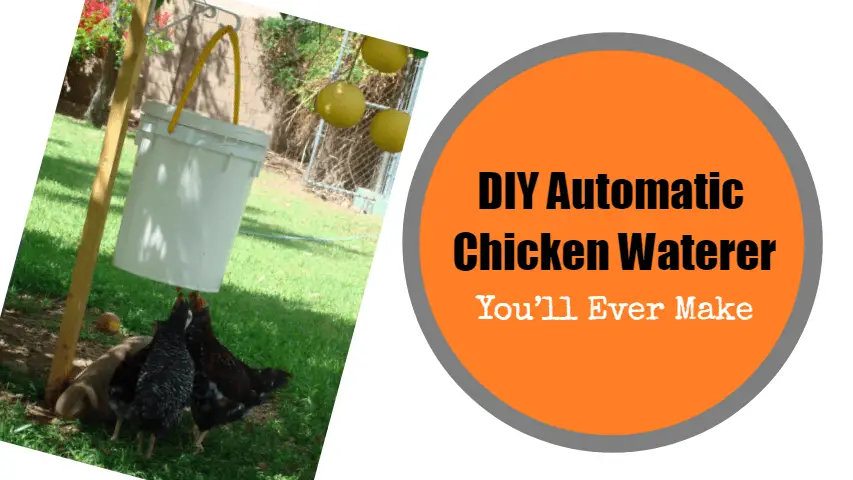Last Updated on February 12, 2024 by Pauline G. Carter
Yes, chickens can eat walnuts in moderation. Walnuts can be a good source of protein, healthy fats, and various vitamins and minerals for chickens. To ensure the safety and health of your chickens, walnuts should be crushed or broken into smaller pieces to prevent choking hazards and should be offered without shells to avoid digestive issues.
Know About Chickens’ Diet
Natural Feeding Habits
Chickens are omnivores by nature, which means they enjoy a varied diet consisting of grains, seeds, insects, and even small lizards. This diverse diet helps them obtain a wide range of nutrients essential for their health.
Nutritional Needs of Chickens
A balanced diet for chickens should include proteins, carbohydrates, fats, vitamins, and minerals. While commercial feeds are formulated to meet these needs, supplementing their diet with healthy snacks can enhance their nutrient intake and provide variety.
Nuts as a Dietary Option
Benefits of Nuts for Chickens
Nuts are rich in healthy fats, proteins, and essential nutrients, making them a potentially beneficial addition to a chicken’s diet in moderation. They can serve as a high-energy snack, especially during colder months.
Potential Risks and Considerations
However, nuts also have high fat content and can be hard to digest if given in large quantities. Moreover, some nuts may contain toxins or anti-nutritional factors that could be harmful to chickens.
Walnuts for Chickens
Nutritional Content of Walnuts
Walnuts are known for their omega-3 fatty acids, antioxidants, and protein content. These nutrients can support the immune system and overall health of chickens when fed appropriately.
How to Safely Introduce Walnuts
To safely introduce walnuts to your chickens, ensure they are unsalted, unseasoned, and crushed or broken into small, manageable pieces to prevent choking.
Other Nuts and Chickens
Safe Nuts for Chickens
Almonds, pecans, and peanuts (unsalted and not treated with any additives) can also be safe for chickens if offered in small amounts and properly prepared.
Nuts to Avoid
Avoid feeding your chickens any nuts that are salted, coated with seasonings, or chocolate-covered. Also, macadamia nuts should be avoided due to their high fat content and potential toxicity.
Alternative Healthy Snacks
Fruits and Vegetables
Fruits like apples, berries, and vegetables like leafy greens can be excellent, nutrient-rich snacks for chickens.
Grains and Seeds
Grains like oats and seeds such as sunflower or pumpkin seeds are also healthy, more digestible alternatives to nuts.
Can you feed black walnuts to chickens?

Yes, you can feed black walnuts to chickens. Chickens typically eat a variety of nuts, including black walnuts. However, it is important to monitor your chickens’ intake of black walnuts, as they can be toxic in large quantities.
If you are unsure about how many black walnuts to feed your chickens, consult with a veterinarian or chicken expert.
FAQs: Chickens Eat Walnuts
Can chickens eat walnuts?
Yes, chickens can eat walnuts in moderation. They should be crushed or broken into smaller pieces to prevent choking. Offer them as an occasional treat, not a staple in their diet, due to the presence of tannins.
Are walnuts good for chickens?
Walnuts can be beneficial for chickens, providing protein, healthy fats, and vitamins. However, they should only be a small part of their diet to avoid nutritional imbalances and potential tannin-related issues.
Can chickens eat black walnuts?
Chickens can eat black walnuts, but they should be given sparingly. Black walnuts contain higher levels of tannins compared to regular walnuts, which can affect nutrient absorption and digestive health if consumed in large quantities.
Can chickens eat shelled nuts?
Chickens can eat shelled nuts, including walnuts, almonds, and pecans, as a treat. Ensure the nuts are unsalted, not moldy, and broken into appropriate sizes to prevent choking hazards and digestive issues.
Can chickens eat walnut shells?
Chickens shouldn’t eat walnut shells due to their hardness, which can cause digestive tract obstructions. Always remove the shells before offering walnuts to your chickens to ensure their safety.
Can chickens eat crushed nuts?
Chickens can safely eat crushed nuts, including walnuts, as part of a varied diet. Crushing the nuts helps prevent choking and makes it easier for chickens to consume them. Ensure the nuts are fresh and free from mold.
Conclusion
Yes, Chickens can eat walnuts, but they should be introduced to them slowly. Walnuts are a good source of protein and fat for chickens, but they can be a choking hazard. Start by offering your chicken a few walnuts at a time and see how they do. If they seem to enjoy them and don’t have any problems, then you can give them more. Just be sure to supervise your chickens when they’re eating walnuts to make sure they don’t choke on them.
About Author (Pauline G. Carter)

Pauline G. Carter is a well-known pet blogger who has written about the world of pets for several years. She is passionate about pets, from cats and dogs to birds, reptiles, and poultry. Her blog, which is updated regularly, is filled with articles and guides on pet care, nutrition, and training. She also shares her experiences and observations on pet ownership, making her blog relatable and informative for pet lovers. She is a true animal advocate and is dedicated to promoting responsible pet ownership. Let’s Go …





